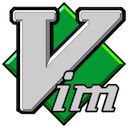This page is not created by, affiliated with, or supported by Slack Technologies, Inc.
2015-06-11
Channels
- # admin-announcements (96)
- # beginners (102)
- # boot (51)
- # clojure (234)
- # clojure-art (1)
- # clojure-berlin (6)
- # clojure-brasil (1)
- # clojure-china (1)
- # clojure-germany (24)
- # clojure-italy (25)
- # clojure-japan (22)
- # clojure-russia (85)
- # clojure-sg (3)
- # clojure-spain (6)
- # clojure-uk (7)
- # clojure-ukraine (3)
- # clojurescript (108)
- # code-reviews (11)
- # core-typed (3)
- # datomic (6)
- # docs (13)
- # editors (121)
- # euroclojure (10)
- # events (2)
- # jobs (7)
- # ldnclj (77)
- # off-topic (27)
- # reading-clojure (8)
- # reagent (27)
- # robots (2)
- # slack-help (22)
Anyone using Atom editor (http://atom.io) for clojure development?
I’ve enjoyed using it when developing in Ruby. I haven’t been able to get my brain wrapped around Cursive yet, so maybe I’ll try to figure out a workflow with it.
trying to figure out if i should have a look at atom to do a cider-nrepl/refactor-nrepl integration for it
@andrewvida @benedek a colleague of mine does
@andrewvida: you might want to check light table as it has really good clj support via https://github.com/rundis/clj-light-refactor
@andrewvida: if you don’t want to embrace the  way 😉
way 😉
I’m a beginner, so I didn’t want to try to learn a emacs as well. I have heard good things about spacemacs though…
spaceemacs is deffo an option. or you can use https://github.com/clojure-emacs/example-config
spacemacs is great if you know vi; not sure I’d recommend it to someone who didn’t already know vi or emacs, though 😉
which gives you a vanilla emacs with all clj goodies (you still need to learn emacs ofc)
@aaronm I actually would, given the sheer productivity and power you get by learning it
@gjnoonan: I’d absolutely recommend learning emacs/spacemacs/vim+tpope’s stuff eventually
but I’m leery of piling on “learn all this other stuff as you’re trying to get into the language"
@aaronm: 👍 but light table is there if @andrewvida wants to focus on the lang first
light table is probably a good option if you’re used to the non-esoteric editors, yeah
everyone learns differently. I can learn multiple things concurrently. Guess I’m lucky
I would absolutely recommend any programmer learn  or
or  , as you can take them to pretty much any language you want to use
, as you can take them to pretty much any language you want to use
and as someone who likes using a bunch of different languages, I’d much rather stay in one editor than switching between specialized IDEs 
poor @andrewvida escaped the  /
/  believers 😉
believers 😉
I started with it a couple of months ago and at first it was pretty touch-and-go but now it’s solid and sleek.
yep! great discussion everyone!
the problem with having used  for over a decade now is that I can barely use any editor that doesn’t have decent
for over a decade now is that I can barely use any editor that doesn’t have decent  emulation, though 😦
emulation, though 😦
@aghecht: Couldn’t use anything less for Java. I have VI emulation on top, but that is just because of muscle memory
I’m with @chris. If I’m shelled in somewhere and I need to quickly edit files, I go for vim. But if I’m local and I’ve Spacemacs up, I practically live in there. Org mode and the like.
my experience with eclipse involved a lot of frustration and crashes; IntelliJ seemed better for me.
Hi! Ppl if you are using vim for clj editing how do you move between/inside s-exp-es? What plugins/tricks are there to easily edit clj code? inserting at the beginning/end of s-exp, moving inside/outside s-exp-es etc? Thanks.
@akiva i need to try and start to use org mode more, since it was one of the reasons that swayed me!
One of my plans is to one day write a better Org mode client for iOS. That’s all that’s stopping me from dropping OmniFocus as my todo manager.
Thanks, I'm looking at vim-sexp and it looks promising. I've read that emacs is better for clojure editing. Why is that?
@davs emacs is a lisp interpreter, so it's very natural to extend it for Clojure. Also, CIDER provides a direct connection between the editor buffer and running code... Emacs has a learning curve but we'll worth it.
*well
emacs is built on lisp, so it has a long history of strong lisp tooling. vim has come a long way toward catching up, though.
It really just comes down to personal preference, except that if your personal preference happens not to be Emacs, it’s wrong.
(HHOS)
given that we have tooling like cursive capable of relatively powerful automated refactorings I’d challenge you to defend that position 😛
@akiva: my father’s a programmer, I used to get “back in my day” stories about punch cards 😉
Hah, yeah, I’ve never had to do it. I got my start in BASIC and 6502 assembly language.
I always found it herapeutic changing the disks, and it was a great sense of accomplishment
@aaronm: 20 years ago I worked with someone who used ed. The scary/strange part was that he was as fast with ed as most people were with vi.
well, vi was originally just a screen interface for ex, which was a fork of ed; I suppose if you’re really used to it...
using spacemacs I am trying to make
(global-set-key (kbd "M-3") '(lambda () (interactive) (insert "#")))I dunno, this works fine if you bind it to another key (^3 works fine), but it doesn’t want to let me rebind meta
it’s being overridden by window-numbering-mode, but I don’t know enough about emacs yet to diagnose how to fix that
or, figured this out: if you want to keep window-numbering-mode working except for that one key,
(define-key window-numbering-keymap (kbd "M-3") '(lambda () (interactive) (insert "#")))but it adds the key definition to the mode’s keymap instead of trying to bind it globally
@arrdem: Eh? If you hover to upper right of your messages, you'll see gear. click it and you can choose edit. Don't think there is any time limit.